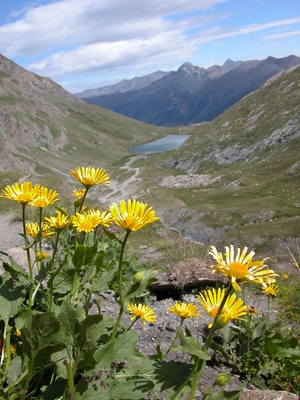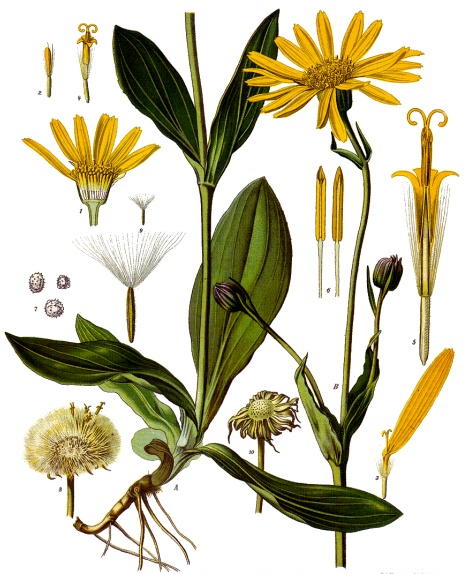
Arnica (Arnica montana L.)
 Parts used:
dried flower heads
Parts used:
dried flower heads
Constituents: sesquiterpene lactones, diterpenes, arnidiol, flavonols, pyrrolizidine alkaloids, caffeic acid, fatty acids, volatile oil
Pharmacopoeia Standard: the dried material should contain no less than 0.4 per cent m/m of total sesquiterpene lactones (helnalin tiglate).
Actions: topical anti-inflammatory
Indications: sprains, insect bites, rheumatic complaints, varicose veins
Applications: Arnica is applied topically to bruises, sprains and unbroken chilblains. The sesquiterpene lactones have an anti-inflammatory action.
Combinations: with Witch Hazel for bruises and sprains
Safety: Arnica should not be taken internally and should only be applied to unbroken skin. Contact dermatitis may occur in sensitive individuals.
Dosage: for external use only.










